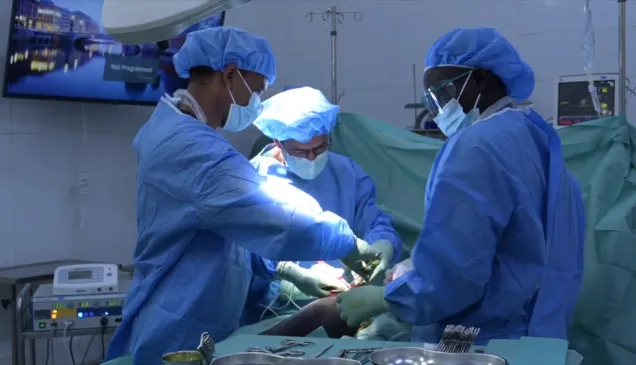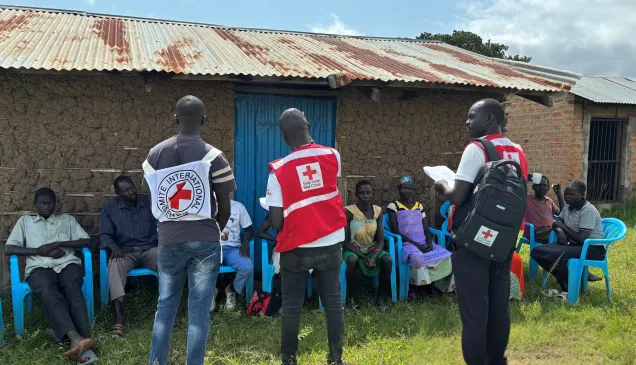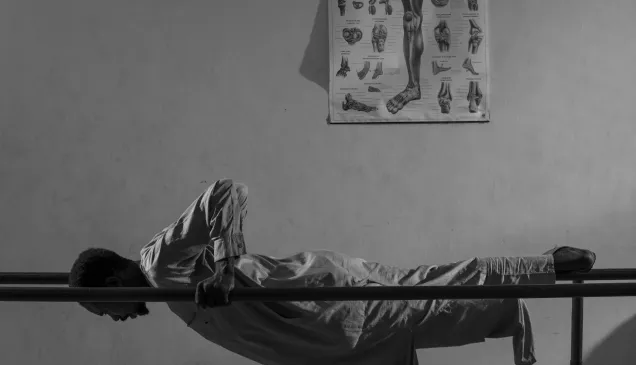South Sudan: World Bank and ICRC partner to save and change lives
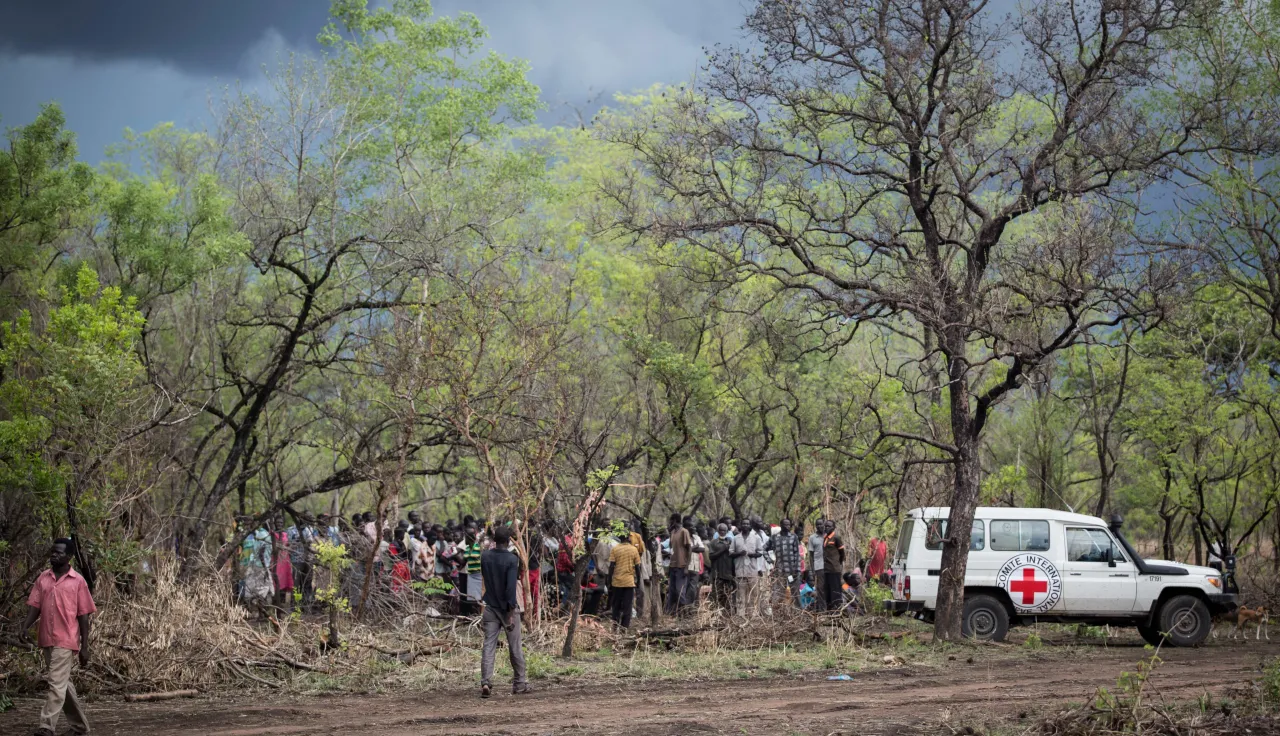
Since 2019, the World Bank and ICRC have partnered to expand access to health care for conflict-affected and hard-to-reach communities in the states of Upper Nile and Jonglei.
In the early morning hours on a cool day in October 2020, as rain clouds gathered in the sky, Julia Royn, a pregnant 28-year-old woman, arrived at Kodok Primary Health Care Centre. She was quickly diagnosed with a pregnancy complication. An urgent referral to Malakal State Hospital, about 70km upstream on the White Nile River, was needed.
Just after Julia boarded a Red Cross boat, the weather changed, becoming hazy and very windy. But the journey couldn't be postponed, as the lives of the mother and her baby were at stake and they needed to receive the necessary medical attention quickly.
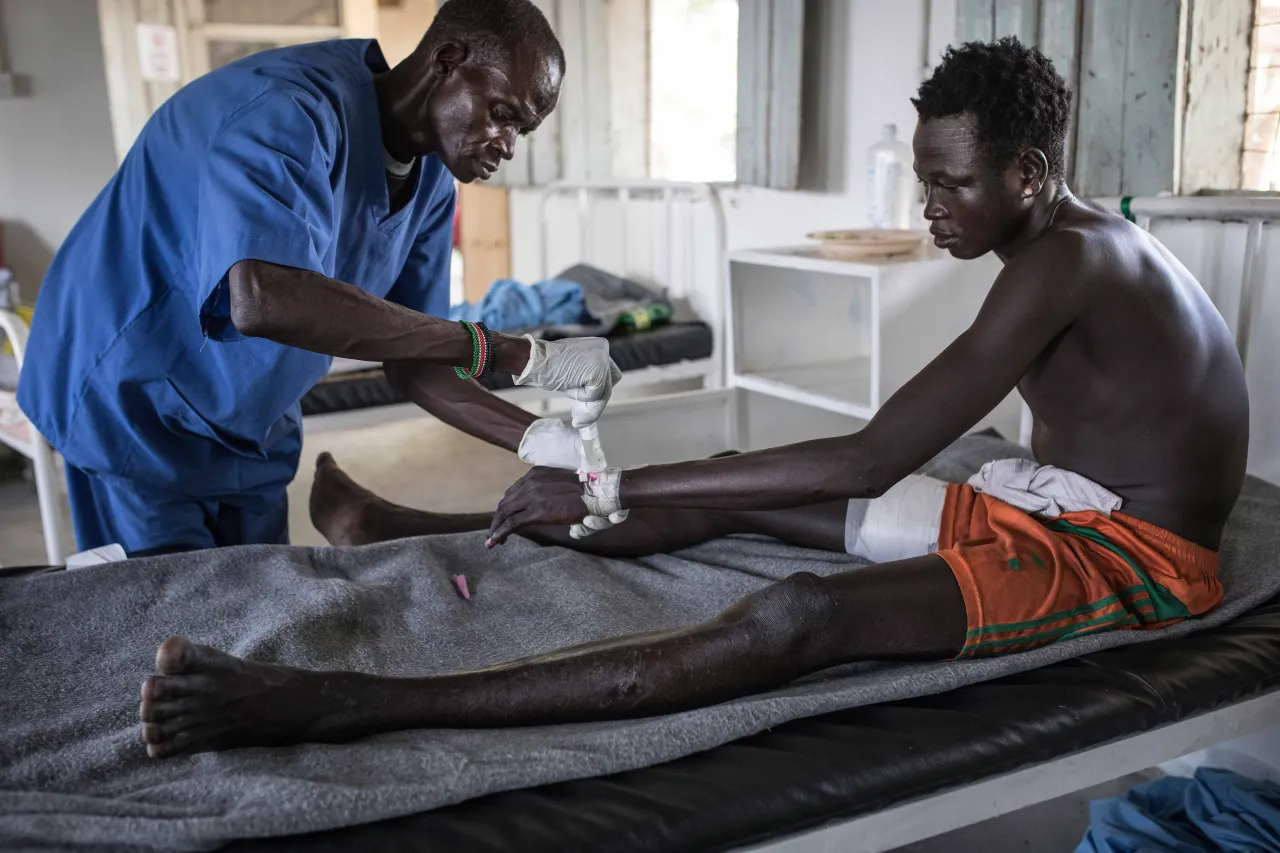
Akobo county hospital. The man was shot in the leg during intercommunal clashes in Jonglei State. He was evacuated to this ICRC-supported hospital along with dozens of other wounded.
As soon as the captain started to maneuver the boat, heavy rain started to pour, creating strong waves on the river. Julia screamed and Annet, a midwife at the ICRC-supported Kodok Primary Health Care Centre, asked the captain to stop. Annet examined Julia again and asked her try to control her contractions as long as she could, in order to gain as much time as possible to make the journey to the hospital.
Minutes later, as the boat was speeding up the river toward Malakal, Julia delivered a premature baby in the boat. The newborn did not show any signs of life.
"Despite that, I covered the baby, using clothes to keep the baby warm. I used the suction plug to remove anything that might be stopping the baby breathing," Annet explained. "There was still strong wind and drizzle in the middle of the river. The weather was so cold. Then I felt the baby moving on my lap." Upon arrival, Julia and her son were able to receive additional medical care at Malakal State Hospital.
Communities in villages like Kodok were devastated during the civil war that engulfed South Sudan between 2013 and 2016. The overall cessation of hostilities brought about by the peace agreement in 2018 brings some hope, but the country's health care system – weakened by years of violence – is crumbling.
Millions of people across the country do not have access to basic health services.
Like most of the people across South Sudan, Julia, her baby and husband's only option for medical assistance was walking to the nearest functional primary health care facility. This journey often takes days, increasing the risks of complications for the patient.
Every single day, people in South Sudan die from preventable and curable diseases, such as malaria, or more serious yet treatable injuries such as gunshot wounds.
"If we focus on urban and easily accessible areas, we will be missing the most vulnerable people who are often not able to travel out of their remote communities due to lack of means, conflict or armed violence. Our goal is to ensure that communities, who are not served by or cannot reach existing facilities, get regular access to basic and life-saving medical care," says Sophie Reshamwalla, health coordinator at the ICRC in South Sudan.
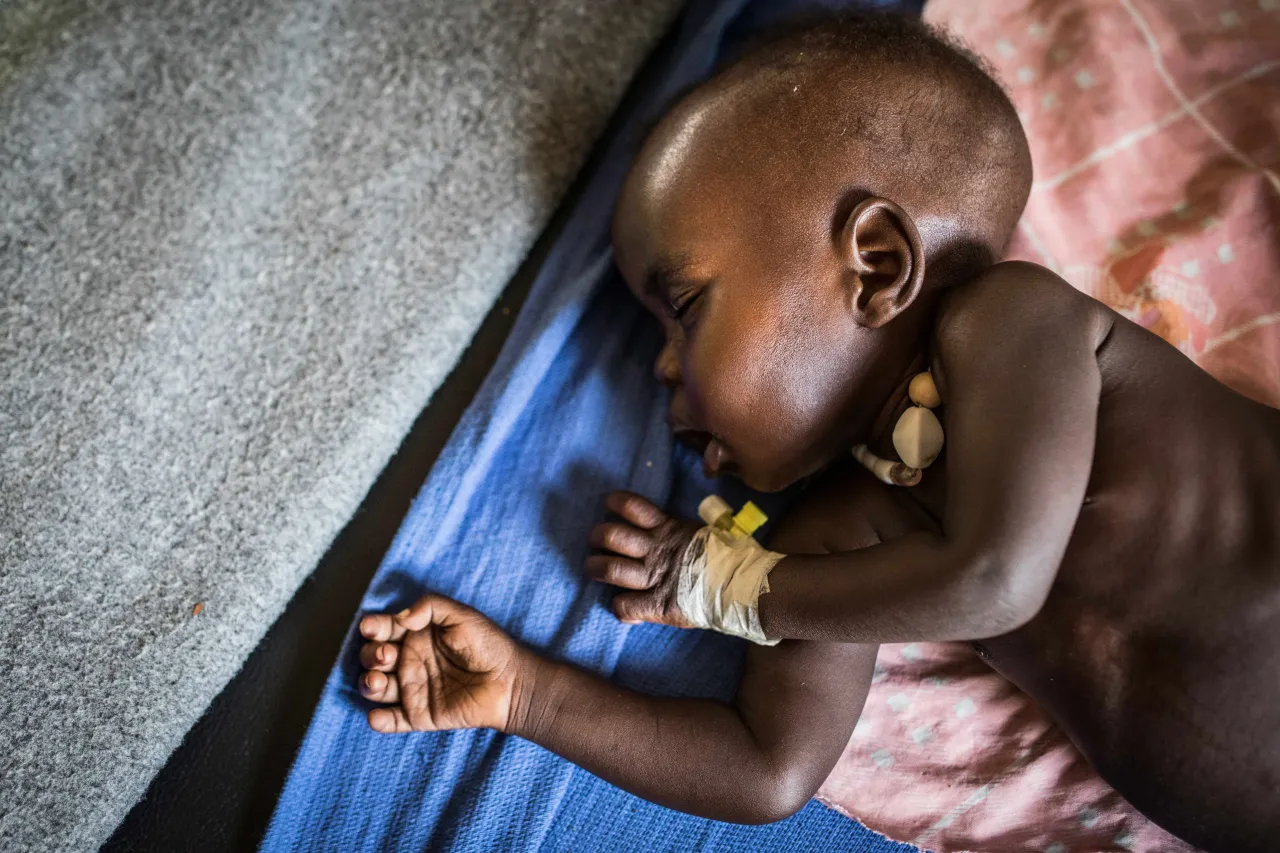
Akobo county hospital. A mother walked three hours in the bush to reach this ICRC-supported hospital to receive treatment for her baby.
Delivering essential healthcare services in Upper Nile and Jonglei states is particularly challenging and requires an integrated approach of service delivery. "Our current partnership through the Provision of Essential Health Service Project (PHESP) is a clear example for building a humanitarian-development nexus in one of the most fragile and conflict affected areas in the world.
We have managed to deliver critical health services to the vulnerable population in those areas while providing essential training to core health workers," says Moustafa Abdalla, Senior Health Specialist and Task Team Leader at World Bank for South Sudan.
Since 2019, the World Bank and ICRC have partnered under PEHSP to expand access to health care for conflict-affected, remote and hard-to-reach communities in the states of Upper Nile and Jonglei. This has been made possible by increasing the number of health care facilities ICRC supports from eight primary health care centres to 22 primary health care centres and one referral hospital through the support of the World Bank. This partnership allowed frontline health workers to carry out over 850,000 patient consultations, vaccinate 202,000 women and children, and helped deliver nearly 15,000 babies amongst other daily health care interventions.
As the COVID-19 pandemic adds more complexity to the South Sudanese peoples' daily struggle for survival, impactful partnerships like that between the ICRC and World Bank are critical to ensuring access to health care for people like Julia and her son. One day, the care they received can be the norm, not the exception.
From 2021 onwards, the ICRC and the WB will continue their partnership around Health in South Sudan, focused on the provision of quality secondary health-care services at the Akobo County Hospital, within the frame of the wider South Sudan COVID-19 Emergency Response and Health System Preparedness Project (SPRP).
The project's objective is to increase the availability and quality of essential health services in a region that has remained affected by bouts of tension/conflict and paucity of health care services.
As part of the partnership, the ICRC has and will be engaging with a range of stakeholders relevant to the project; conducted an assessment of potential environmental and social risks linked to the project currently being managed; an approach reflected as well in the project's commitment plan.
This groundwork and the iterative and continuous follow-up provided will ensure agreed environmental and social standards are lived-up to.

